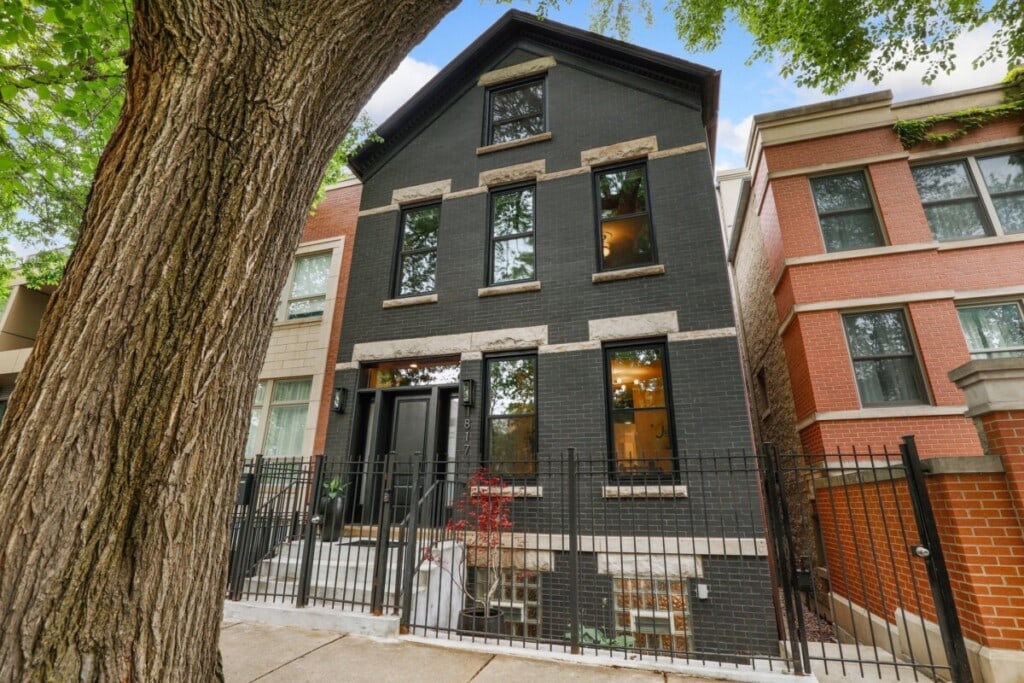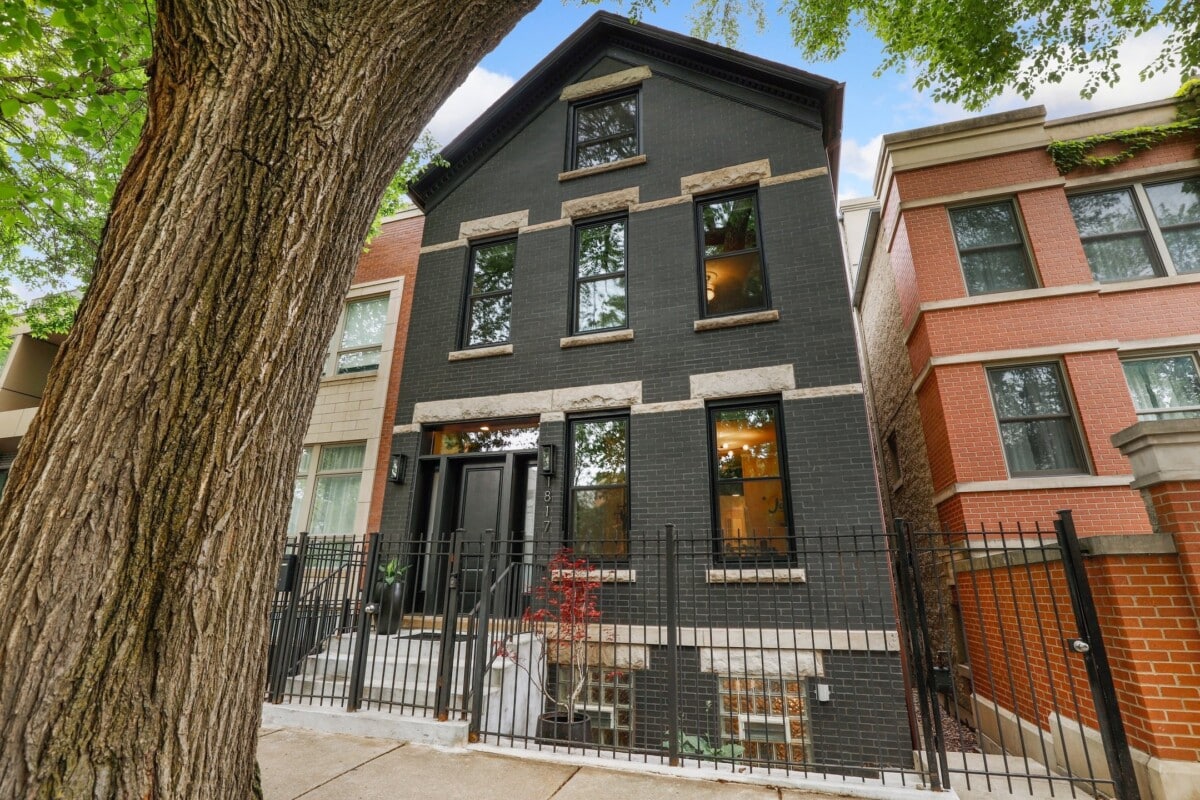8 Benefits of Owning a Home: What to Consider Before Buying a House
Is buying a house a good idea? There are several benefits of owning a home, like home equity and tax benefits. Learn about the benefits of homeownership. The post 8 Benefits of Owning a Home: What to Consider Before Buying a House appeared first on Redfin | Real Estate Tips for Home Buying, Selling & More.


As a renter, it’s likely you’ve heard that owning a home has a variety of benefits. Whether you’re happy renting or thinking about buying, it’s helpful to understand what makes owning a home appeal to so many.
In this Redfin article, we’ll highlight eight benefits of owning a home and tips to make homeownership worth it. Whether you’re looking for a home in Portland, OR, or considering buying a condo in San Jose, CA, find out the benefits of homeownership to decide if buying a home is right for you.

1. Building home equity
Home equity is the portion of your home that you own—calculated as your home’s market value minus what you owe on your mortgage. It grows over time as you make mortgage payments and if your home appreciates in value.
For this reason, many people plan to live in their house for a few years in order to build equity in their home – and possibly sell for a profit. Some of the benefits of building home equity include:
- When you sell your first home, you can use the proceeds as a down payment on your next home.
- With enough equity, you may be able to afford a larger or more expensive home.
- If you pay off your home, you can live rent-free and pass it on to any heirs.
- You can use your equity to borrow money for home improvements or other big expenses.
There are many ways to access your home equity, which we’ll cover in more detail later.
2. Your home’s value may appreciate over time
Homes typically go up in value (appreciate) over time, making it one of the more reliable investments. For example, you buy a home for $400,000 and it increases in value by 2% each year. After five years, your home’s value may increase to $440,000. When the time comes to sell your house, you may make a profit on the sale.
There are plenty of ways to see your home’s value. You can use an online tool to estimate how much your home is worth or see what nearby properties have recently sold for (called real estate comps). Other ways to increase your home’s value include making valuable home improvements like kitchen upgrades or a new roof.
3. Tax benefits
There are several tax benefits of owning a home. If you itemize your tax returns, here are some tax deductions you may qualify for:
- Mortgage interest deduction: You may be able to deduct interest paid on your mortgage up to a certain amount.
- Property taxes: You may be able to deduct state and local property taxes paid on your house, up to $10,000 ($5,000 if married filing separately).
- Mortgage credit certificate: For qualifying homeowners, you may be able to reduce your taxes up to $2,000.
4. Predictable monthly payments
Unlike renting, where landlords can raise rent, a fixed-rate mortgage offers stable monthly payments. While property taxes and insurance may change slightly, your principal and interest payments remain the same as a homeowner.
If interest rates drop, you may also have the opportunity to refinance your loan. This may decrease your monthly payments, giving you an even better deal.

5. Control over your space
When you own a home, you can do whatever you like with the space. Whether that’s painting the walls, renovating the kitchen, installing built-ins, and more, you have the ability to make your space your own. In a rental, you have to follow the rules outlined in your lease. While you may be able to paint the walls, you’ll likely have to repaint them when you move out of the rental. In your own home, you won’t have to worry about that.
6. Long-term stability
Owning a home provides stability that renting doesn’t always offer. You won’t have to worry about moving out because your landlord decides to sell the property or because your rent increased. It’s likely you’ll live in the home for several years, which gives you the opportunity to build community in the area.
7. Access to home equity funds
As mentioned above, there are many benefits to home equity. You can borrow from your home equity in order to fund other purchases or plans – like a wedding, a second home, home renovations, and paying down debt. There are several ways to tap into your home equity:
- Home equity loan: A home equity loan allows you to take out a loan against your home. It’s a fixed amount loan that has a repayment schedule, but often has lower interest rates than personal loans or credit cards.
- Home equity line of credit (HELOC): HELOC allows you to open a line of credit for a set amount of time, so you’re able to withdraw funds as needed. You’ll also have a repayment schedule for a HELOC.
- Cash-out refinance: A cash-out refinance replaces your current mortgage with a new, larger mortgage loan. You receive a lump sum of the difference between the two loans.
8. Help improve your credit score
If you had a lower credit score when purchasing a home, owning can give you the opportunity to increase your credit score. Paying your monthly mortgage payments on time shows you’re a responsible borrower and reliable to repay your loan. There are lots of benefits to having a higher credit score in the long run, such as better loan terms and access to more loan types.
Tips to make homeownership worth it
While there are a lot of benefits to owning a home, there can also be cons. Here are some tips to keep in mind that can help you make homeownership worth it.
- Only buy a home you can truly afford: One mistake homebuyers make is buying a home that’s over their budget. This may cause people to lose money on their home, if they’re struggling to make monthly payments.
- Fully understand your loan terms: While some loans let you buy with a small (or no) down payment, they can also come with downsides. You may have additional payments, high interest rates, or commit to living in the home for a number of years. Make sure you understand all the details of your loan before you sign a contract.
- Buy when you’re ready, not before: Take time to save the money you need, improve your credit score, or pay down debt if your lender recommends it.
- Work with a real estate agent and lender you trust: A good real estate agent will advise you on whether a home you’re interested in looks like a good investment. A good lender will walk you through all your loan options and explain the pros and cons. Make sure to talk with different lenders and shop around for the best loans and rates.
The post 8 Benefits of Owning a Home: What to Consider Before Buying a House appeared first on Redfin | Real Estate Tips for Home Buying, Selling & More.





















































































































































